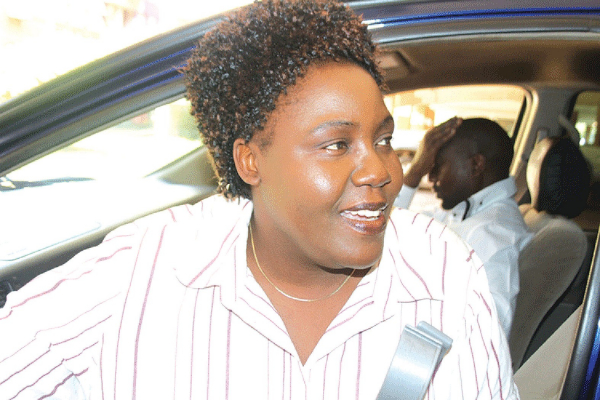
People living with disabilities in Zimbabwe constitute 10% of the population.
By VENERANDA LANGA
Senator Shiri said that they are the most marginalised persons in Zimbabwe and a majority are excluded from employment despite having good educational qualifications.
Some of them, especially the visually impaired, end up as street beggars. People living with disabilities include the visually impaired (blind), hearing impaired (deaf), those who lost limbs and even people with the condition of albinism.
The constituency of people living with disabilities was created after the 2013 Constitution was crafted. As a result, two senators, Annah Shiri and Mashavakure Nyamayabo were elected by people living with disabilities to represent them in Parliament. They will serve for five years.
Problems encountered by people living with disabilities that Shiri has highlighted in Parliament include:
lLack of budgetary allocation for self-help projects and revolving loans for people living with disabilities lLack of information in different formats such as braille and sign language resulting in the blind and deaf being left out in information dissemination.
lDiscrimination in issues of employment where people with disabilities are often left out and perceived incapable of performing some duties
- Chamisa under fire over US$120K donation
- Mavhunga puts DeMbare into Chibuku quarterfinals
- Pension funds bet on Cabora Bassa oilfields
- Councils defy govt fire tender directive
Keep Reading
lLack of infrastructure that is disability friendly such as buildings and recreational facilities, among others lFailure by the government to provide wheelchairs, albino sunscreen lotions, hearing aids for free.
Performance of Senator Shiri
The MP lives with a disability after she lost one of her feet during a car accident and has been passionately raising issues affecting her constituency in Senate. During question and answer sessions in Parliament, Shiri has always ensured that she highlights issues pertaining to people living disability.
“I have asked questioned about sunscreen lotions for people living with albinism, urging the government to provide them free of charge just like what we do with anti-retroviral drugs. It is government’s responsibility to ensure that every aid used by people living with disabilities is not taxed and that the national budget caters for these essentials,” Shiri said.
“I have been pushing that every ministry must have a disability focal person so that they are able to scrutinise everything to ensure it is disability sensitive. Other issues that I have raised are that there is a lot of discrimination at workplaces where people with disabilities are ignored and are not employed. There is an issue of buildings which were constructed without taking into consideration that there are people living with disabilities who also need to access them. People living with disabilities also need to visit and enjoy the different recreational facilities around the country.”
Shiri even went to the extent of confronting Civil Service Commission boss, Mariyawanda Nzuwah over alleged discrimination of people living with disabilities in the teaching profession.
“Nzuwah had been given the authority to employ 2 300 teachers and so I had to make special arrangements to ensure that they also employ persons living with disabilities. I also lobbied that there must be a quota system whereby a percentage of persons living with disabilities are considered for employment after graduating.”
The Senator sits in the Parliamentary Thematic Committee on Gender and the Parliamentary Thematic Committee on Sustainable Development Goals (SDGs) where she has also been raising issues pertaining to her constituency.
“People living with disabilities have always been viewed as second-class citizens, and the rights of war veterans, women and children are even well-documented in the Constitution than those of people living with disabilities. If you study the chapters in the Constitution pertaining to people living with disabilities, they always say that they will provide resources for them whenever they are available. This limits the rights of people living with disabilities.
“However, as their representative, I am saying that it is no longer a charity issue. People living with disabilities need empowerment educationally and professionally. If they are empowered they will be able to work for themselves.
“I also want to say that they must never be left out on any kind of information dissemination. There is need for information on HIV/Aids in braille and during rallies, church gatherings and others there must be translation in sign language. Braille and sign language have been recognised as part of the 16 official languages in the Constitution and so why is that not being implemented? Currently, there is the biometric voter registration exercise and there has not been information dissemination on that to people that are visually and hearing impaired.
“There is also need for more representation of people living with disabilities in Parliament, local authorities and everywhere. Currently, there are only two senators representing a constituency of about 1,5 million people. These representatives only sit in Senate. In the National Assembly, there is no single MP that represents people living with disabilities. There is now need to have MPs that represent people living with disabilities in the National Assembly.
The only disabled MP (blind) in the National Assembly is Rossy Mpofu, but she came under the Zanu PF ticket as a proportional representation MP. So, it means that her contributions are not necessarily about people living with disabilities. She obviously debates in the interests of the political party that brought her into Parliament.
“I suggest that now in the women proportional representation quota, 10% of the seats must be reserved for women living with disabilities. After all, women are the most marginalised, what more a disabled woman, she is the worst affected.”











